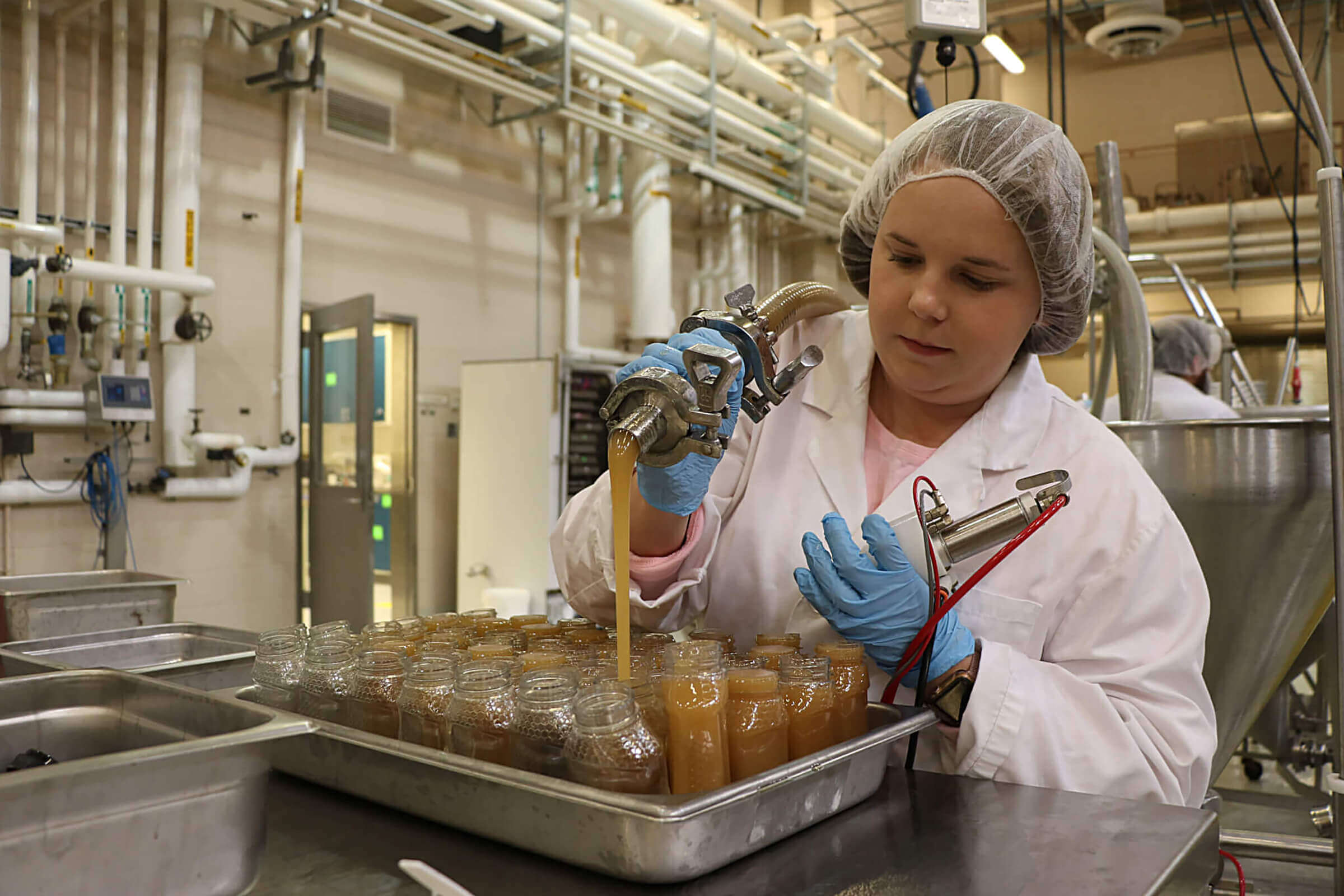Food science and entomology collaborate to produce Boiler Bee Honey
There are a number of food products produced by groups within the College of Agriculture, from the Department of Food Science’s Boiler Black and Boiler Gold beers to all the proteins supplied at the Boilermaker Butcher Block. Soon, fans of Purdue University consumables will have another item to add to their pantries: honey.
The departments of Food Science and Entomology have collaborated on Boiler Bee Honey, collected from bees in the Purdue apiary and processed and bottled in the food science pilot plant. The product has been minimally processed to allow consumers to see and taste the honey in its purest form. Proceeds from Boiler Bee Honey will support research in food science and entomology.
The honey bees responsible for this nectar fed on wildflowers, which produces a rich and dynamic flavor.
“They take a high level of care with the bees in the apiary, from the quality and type of flowers to the care of the bees,” said Eric Kurdelak, manager of the Pilot Plant. “And, of course, we have taken great care in processing the honey. This is a singular product.”
A key facet of this project is that it’s a student-driven initiative, Kurdelak added. Alyson McGovern, a sophomore in food science, has led the project from the honey’s extraction to its bottling. She has navigated every phase and challenge of the process, taking the honey from a raw ingredient to a shelf-ready product.
“The experience has been invaluable in terms of knowledge gained and in building my portfolio,” McGovern said. “When I’m applying for jobs, I’m going to have a physical product I can point to that I made happen. I might even take it to my interviews and put it on the table.”
Brock Harpur, assistant professor of entomology and project collaborator, said McGovern came in with very little knowledge of bees or honey, but she is now a bona fide expert.
“This is a wonderful way to demonstrate the collaborative work that can take place every day at Purdue and the opportunities we offer students,” Harpur said.
This isn’t a one-time event, Kurdelak added. The hope is to repeat this project every year and have the same project leader, in this case McGovern, training other undergraduates to take over after she leaves. With the proceeds, they will be able to support these students and improve the operation each year.
The inaugural batch processed this year produced roughly 3,000 bottles, taken from nearly 24,000 ounces of honey. The product is available at the Boilermaker Butcher Block on campus for $5 a bottle.
“I don’t know any place else where I could have this kind of hands-on experience,” McGovern said. “This is why I came to Purdue.”






